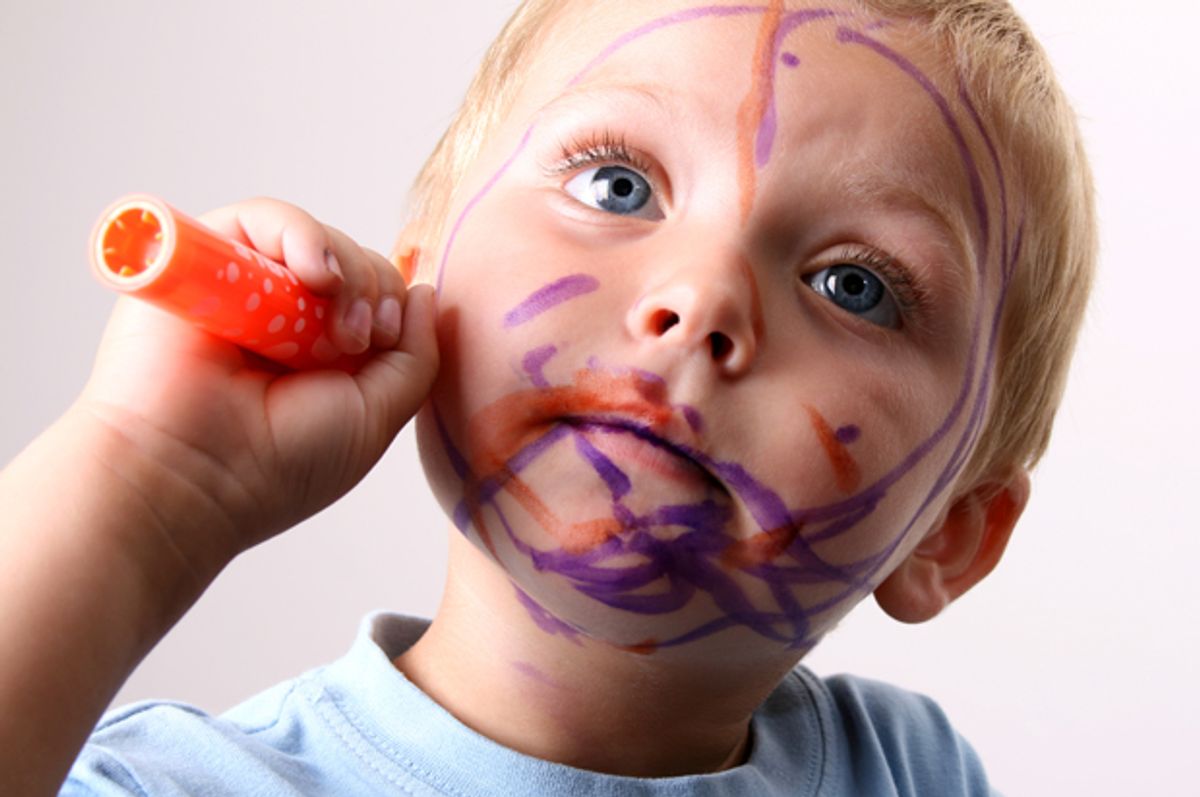As the American mother of a 4-year-old girl, with a French husband, I’ve gotten a chance to see playtime from both sides of the pond. Over the years, I’ve also gained a new set of both French and American “mommy friends,” who often pepper me with questions about whether the French truly parent better, as Pamela Druckerman argues in her book "Bringing Up Bebe." While I’m hesitant to take part in such a “who’s better than whom” parenting war, there’s one place where French parents have it right: that is, in their attitudes and rules about children’s play.
When we get together with our American friends, we often have to squeeze playtime in between class time, even (or especially) on the weekends. Between French class and soccer class, between guitar lessons and yoga, we struggle to find time to meet up with our friends. “You could sign up for the classes too,” is the frequent refrain, and I have to explain, at times uncomfortably, that we’re already busy enough. The idea that play is a natural thing—indeed, one of the most fundamental aspects of our humanity—seems completely foreign. However, on our trips to France, which we take around every six months, meeting up at playgrounds is the most structured thing we do.
Often, our French friends seem taken aback at even that suggestion, preferring to run through the Luxembourg Gardens and watch the toy sailboats or meet up at a café. On those visits, my daughter’s “playtime” often involves running up and down the stairs of a café, and then coloring or reading stories in between bites of croissant. The preferred French choice is to meet up at each other’s homes (or rented apartments, as the case may be), where the kids amuse themselves with each others’ toys and “help” prepare dinner, cutting bread or throwing carrots into bowls.
The American interest in structured activities has trickled downhill, into the ways we think about parenting and raising kids. No longer is it enough to spend the weekend running errands, doing what we normally do, and knowing that my daughter Sophie will find a way to play, whether juggling the grapes in the grocery store cart or throwing rocks into the water at Walden Pond. No: We must pay for playtime, and have it be organized for us. We must sit back and relax while other people tell our children what to do.
Now that my daughter is in preschool, I see this trend even more clearly, in the 18 school birthday parties we have over the year. Up until two years ago, we often had parties at each other’s houses, but no more. Now, our parties are highly structured affairs, at one of a few key places. By now, I have the schedule of those parties memorized: Jump in one bouncy house structure for 25 minutes, in a second bouncy house for 20 more, then collect shoes, sanitize hands, and walk into the third room for store-provided pizza and cake. In other places, the kids’ activities are fully choreographed, with fresh-faced twenty-something girls shouting “It’s your birthday, it’s your birthday, go go go!” as the often excited but over-stimulated child shoots down a zipline, with a mixture of anxiety and glee.
This example of birthday parties mimics the larger trend in American parenting of making sure that every spare moment is structured, organized, and rule-bound, with little chances for kids to get off-track. Gone are the relaxed soccer games that devolve into kicking the ball into the trees. Now, we have “Super Soccer Stars,” in which kids are enrolled as young as 12 months to start learning how to “kick and play.”
While this critique may sound accusatory, I’m pointing a finger equally at myself. Months before her birthday, my own daughter begged to have her birthday at one such place, and, not wanting to disappoint her, I agreed. She’d seen all of her friends having similar parties, after all. Around the time she was two and a half, we also enrolled her in Super Soccer Stars, and found to our dismay that she didn’t actually want to follow the teacher at all. Rather, she preferred running around in circles when the teacher told her to stand still, and putting the soccer ball in her baby stroller and pretending it was a baby doll.
As a speech-language pathologist and early childhood expert, I should have known. Children that young aren’t often able to engage in cooperative play, but rather at best play “in parallel,” or side by side with other children. Trying to get them to share is, more often than not, driven more by our concepts of fairness than any clear understanding on our children’s parts. But teaching children to share isn’t the problem. More disturbing is the suggestion that kids need to play the way we do, that they need to mimic our games and rules, rather than make up their own.
Kids can’t be truly creative if, early on, they’re learning nothing more than following rules. As research on child development shows, children should be exposed, as often as possible, to unstructured activities, in which they have the time and space to make discoveries. These discoveries, on the surface, may look like nothing much: how a leaf balances on a stick, say, or how many croissants can be stacked before they all tumble down. More often than not, experimentation in early childhood looks like mess. Learning looks like pulling things apart, then figuring out how to fit them together again. In all the glitz and glimmer of structured classes, there’s no time for such a mess, but no time for deep learning either. That’s the paradox of our modern age: To help kids become more creative, we actually need to start doing less.

Shares